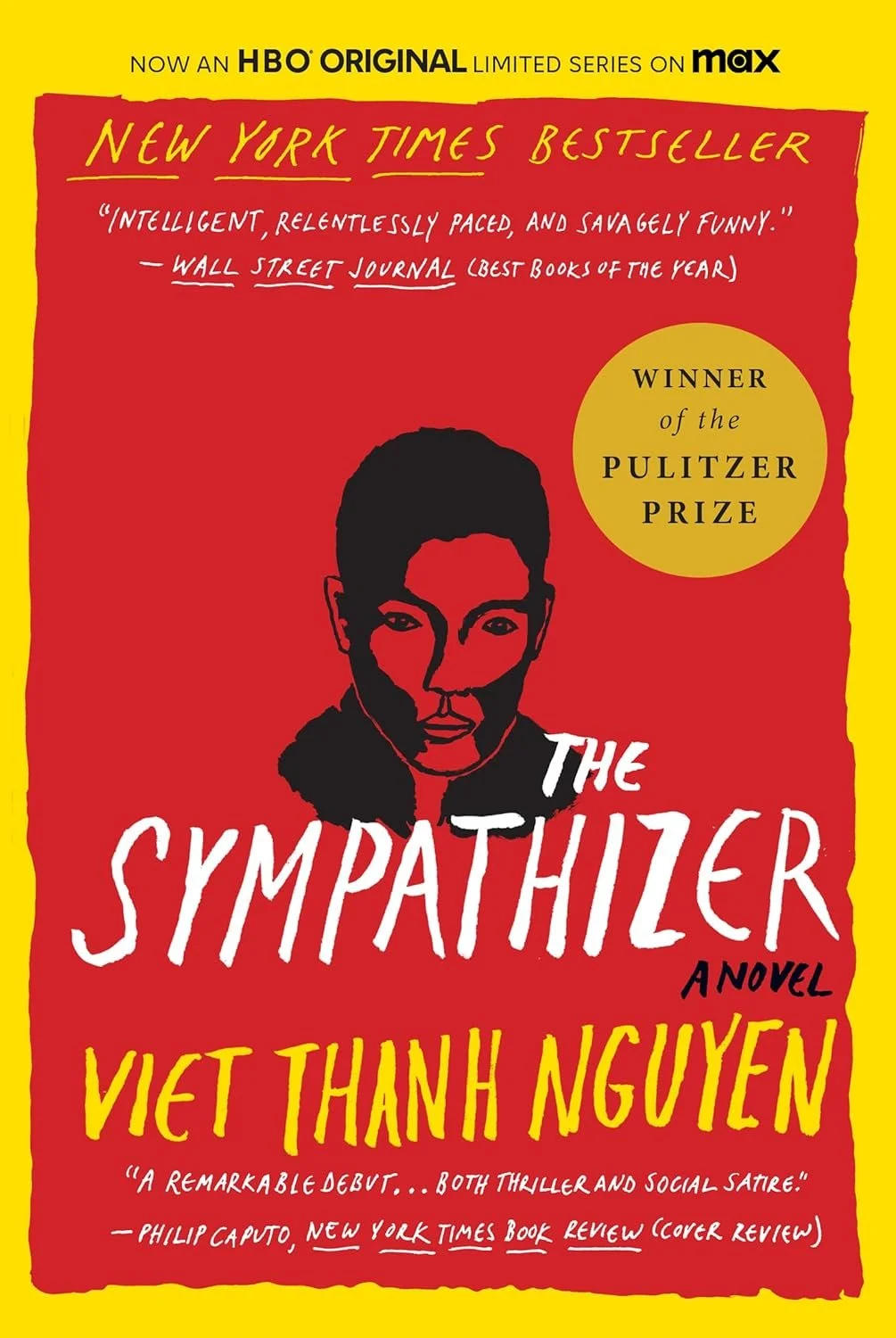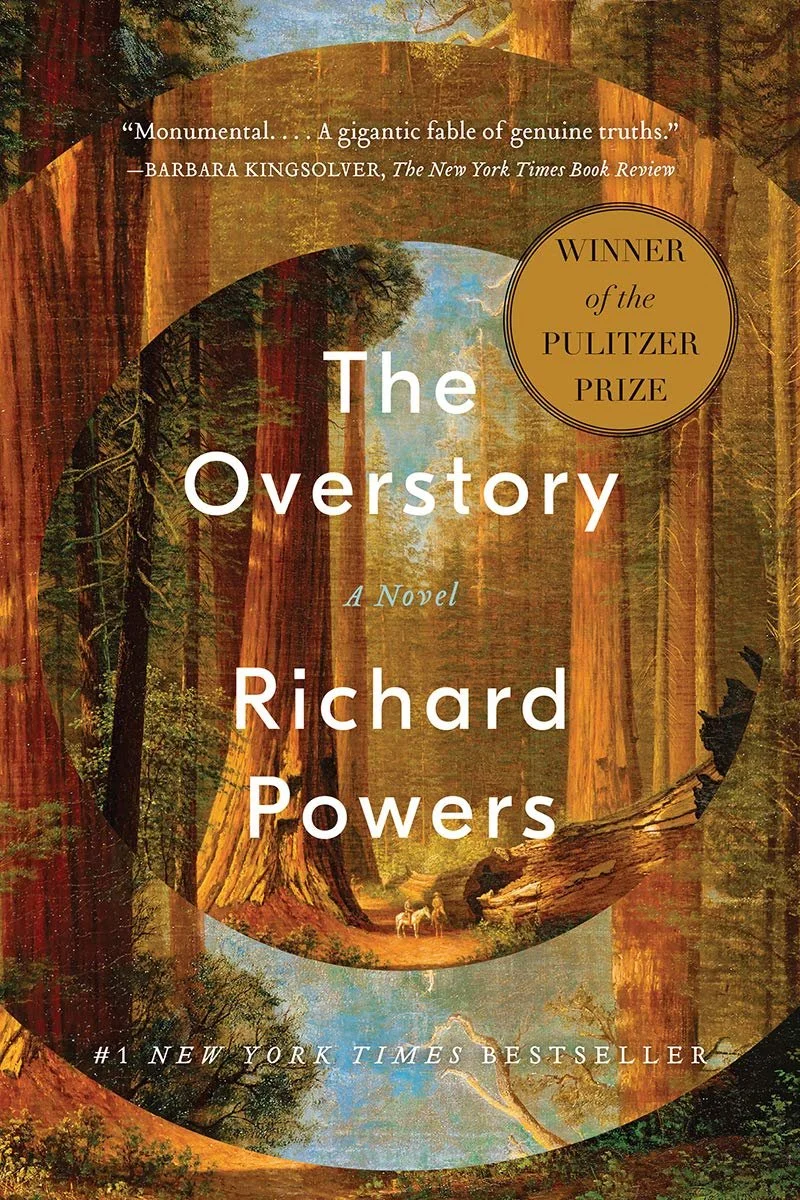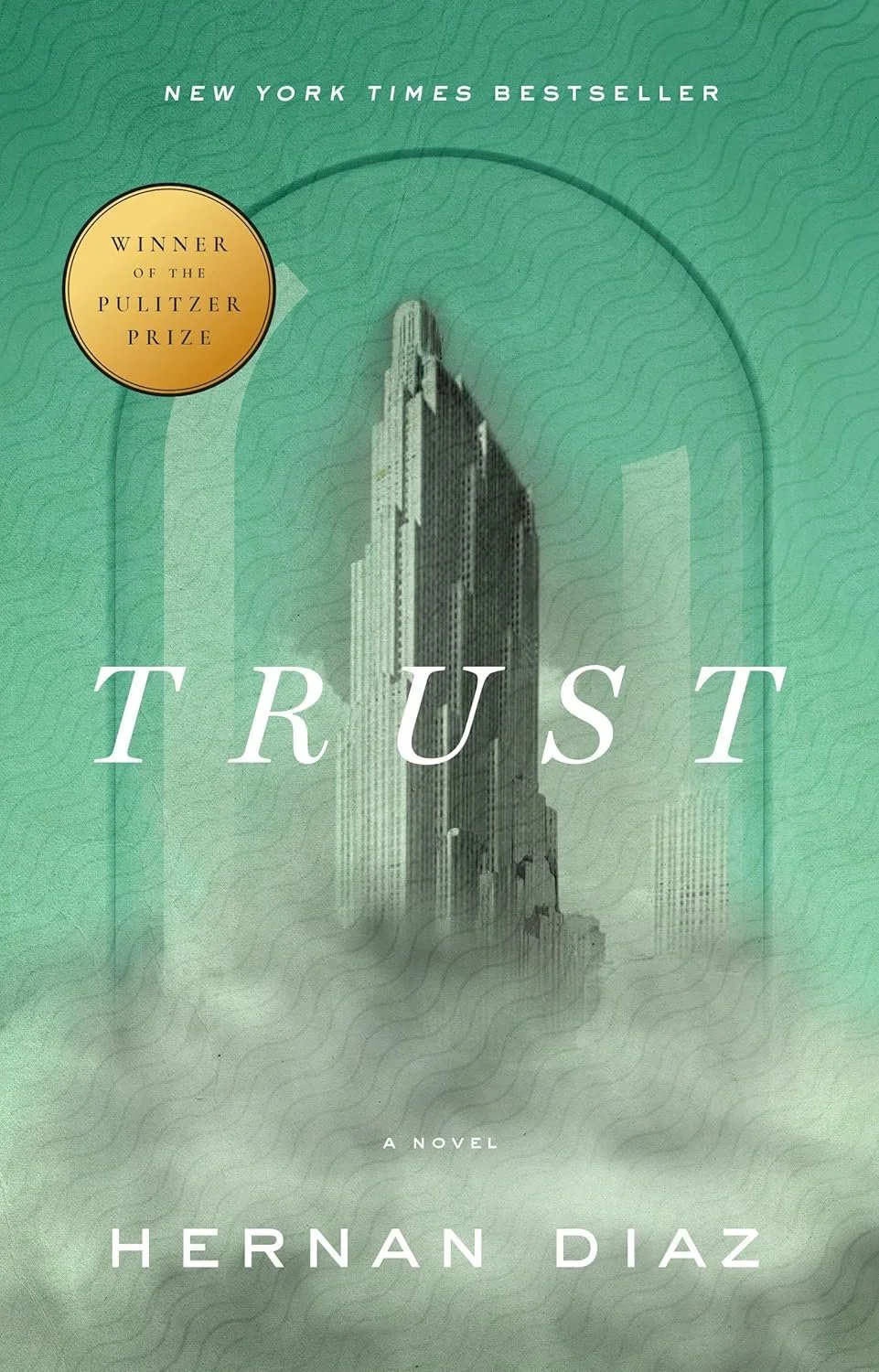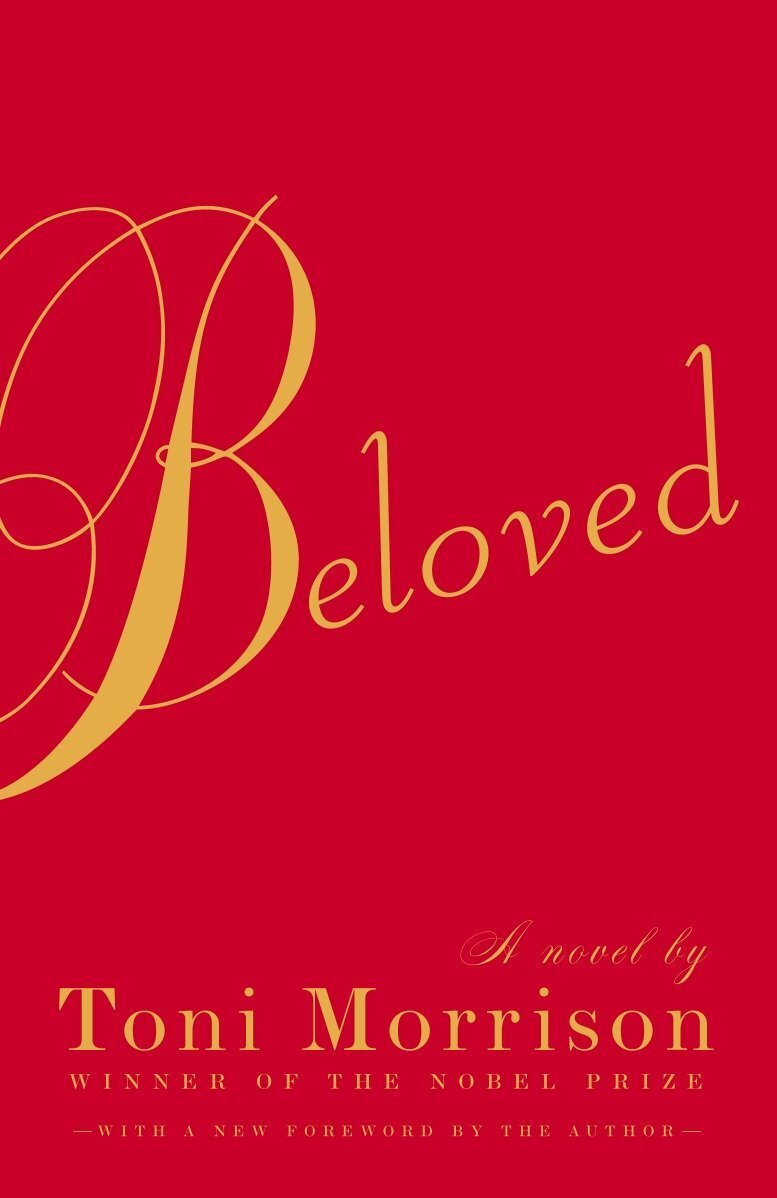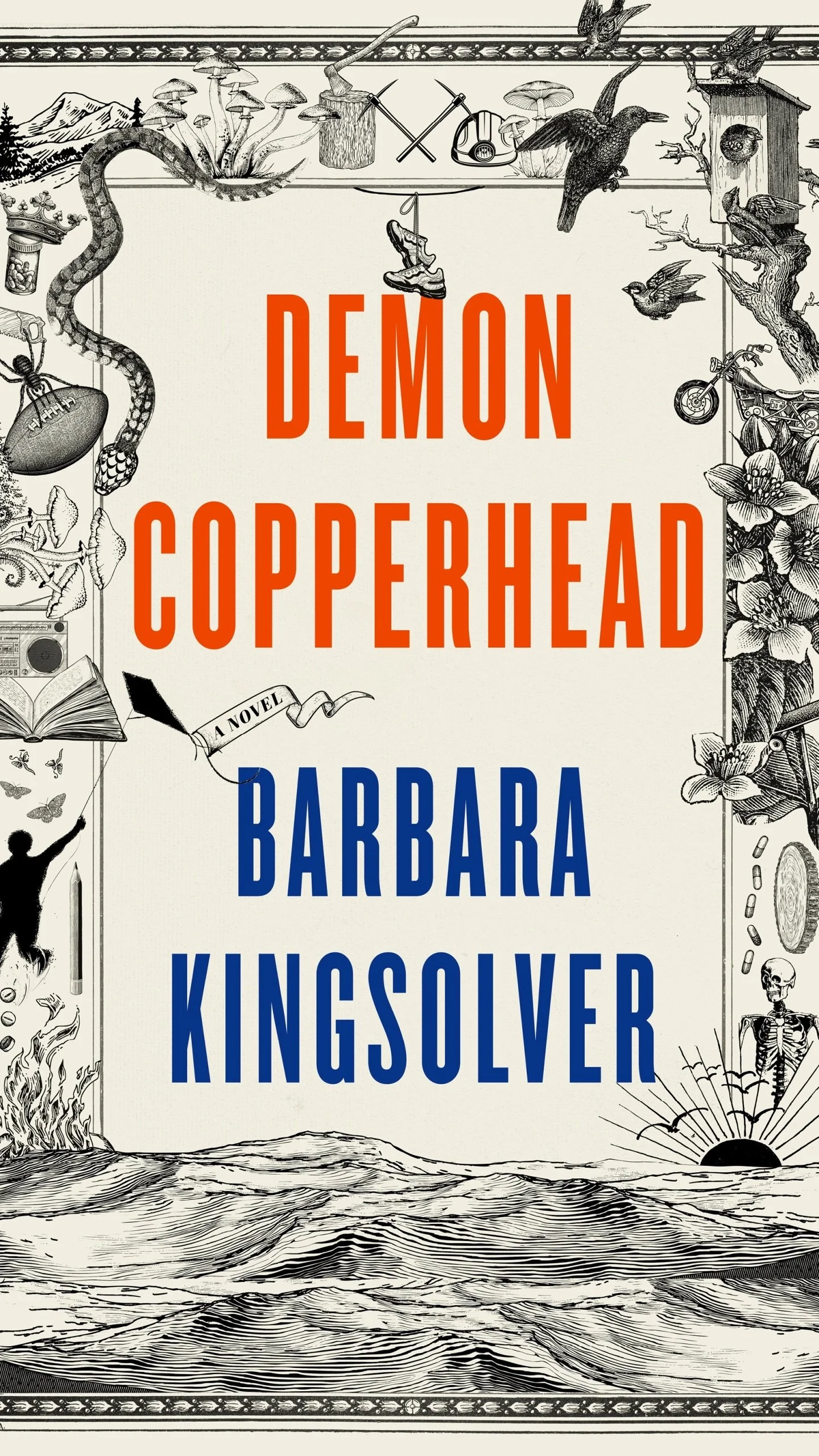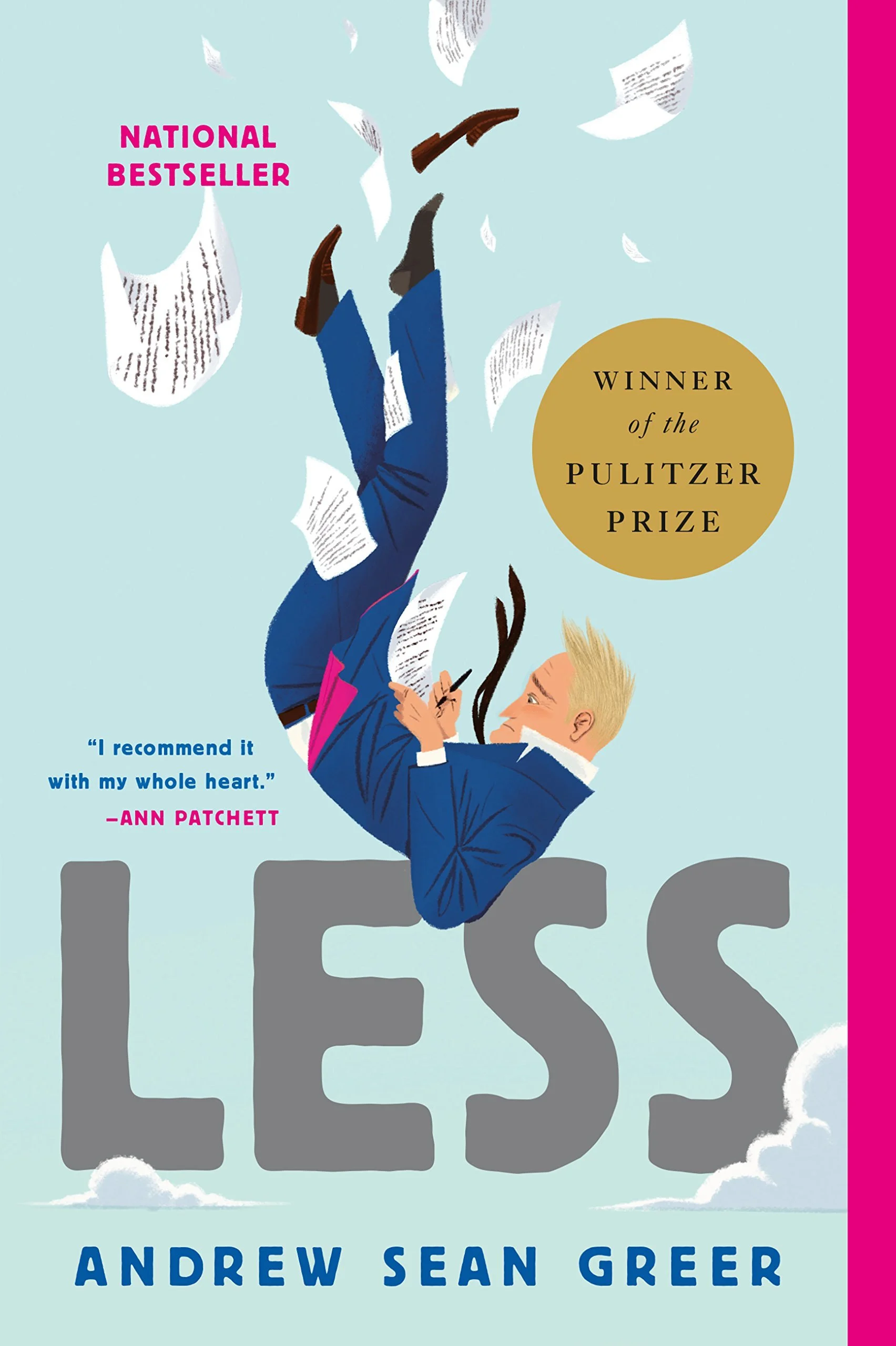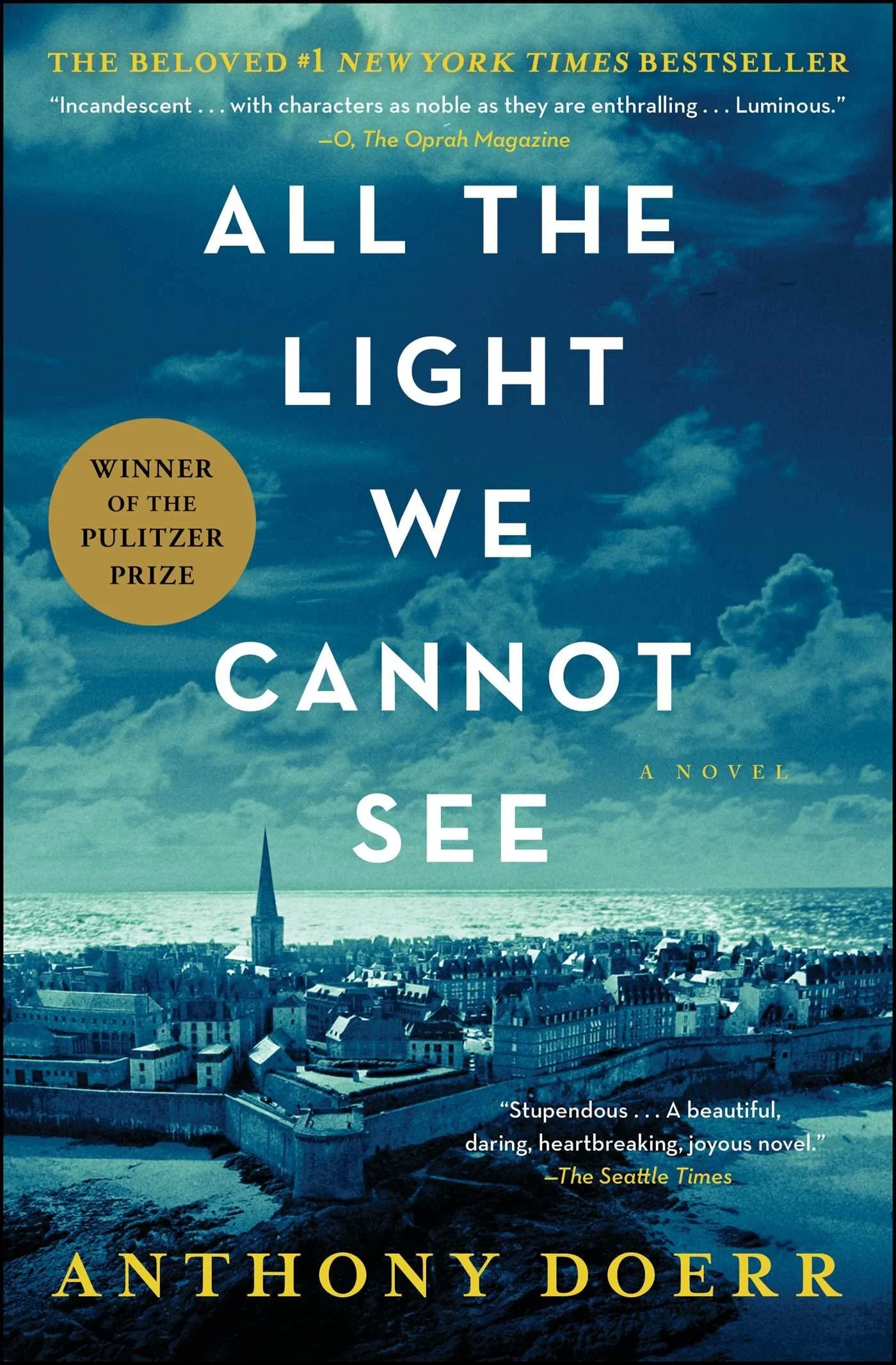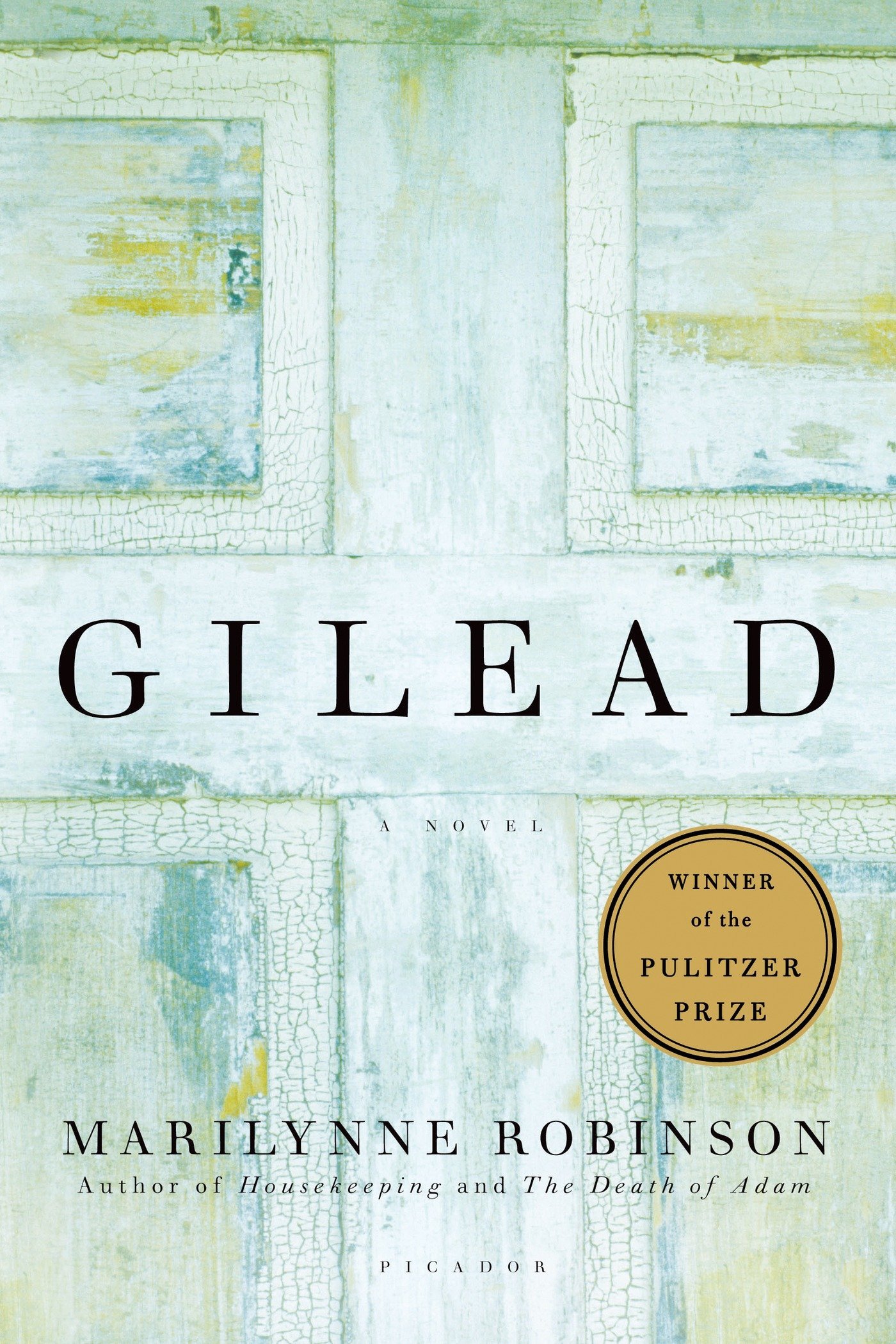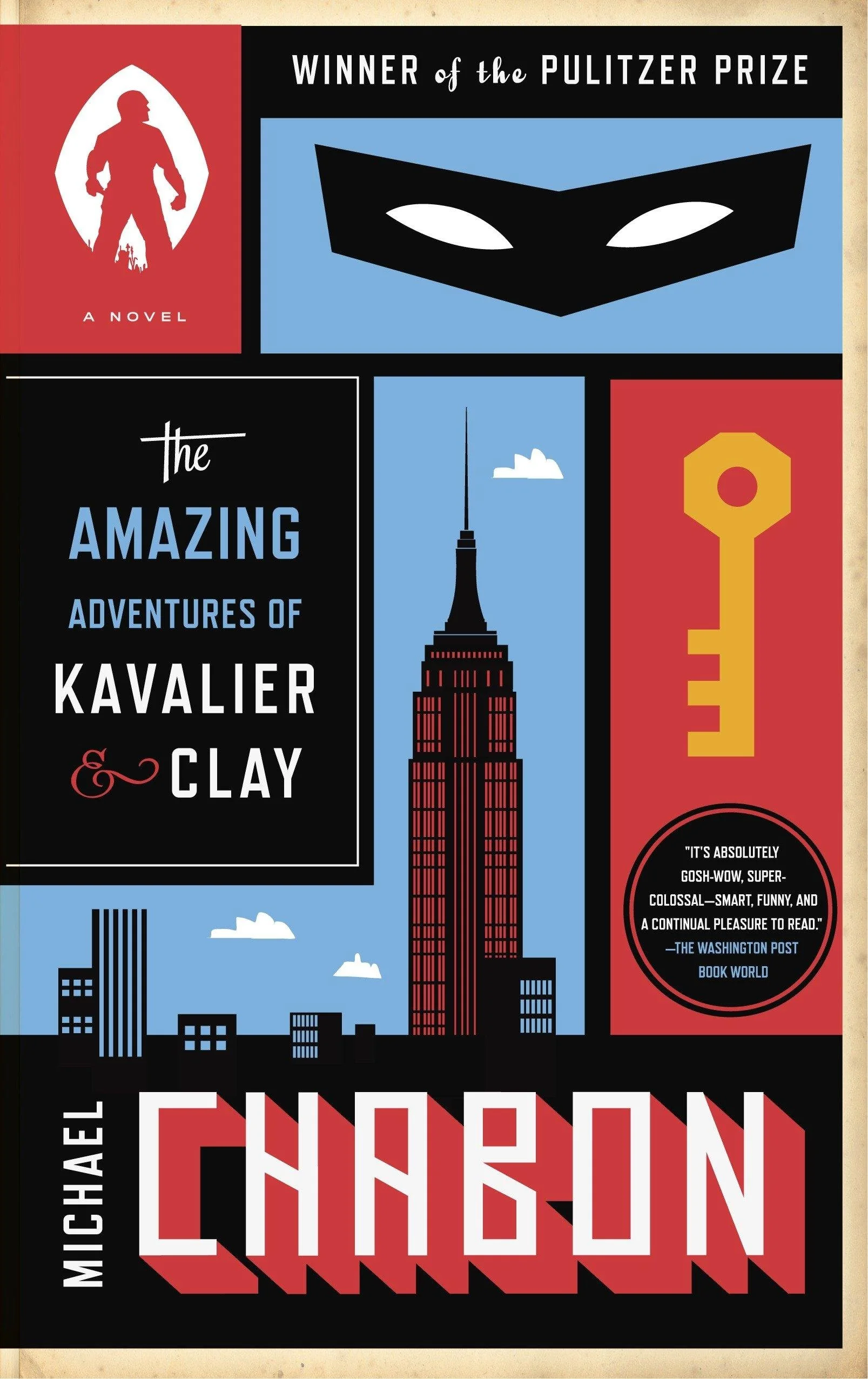Pulitzer Prize-Winning Novels
Pulitzer Prize-Winning Novels
I want to note that I do not get paid to do these posts, I just love authors and the book industry. However, they do take time and energy to create. If you want to donate a few dollars to my coffee fund, which keeps this blog going, you can do so here: https://venmo.com/AshleyHasty or here: http://paypal.me/hastybooklist.
Administered by Columbia University, The Pulitzer Prize for Fiction is a highly esteemed and prestigious literary award that recognizes distinguished novels written by American authors. Established in 1917 by the provisions of Joseph Pulitzer's will, the Pulitzer Prize has since become a symbol of excellence in American literature. Each year, a panel of distinguished judges carefully evaluates a wide array of nominated works, considering their literary merit, impact, and contribution to the American literary landscape. While there are numerous nominees across various categories, only one exceptional novel is chosen as the winner in the Fiction category, making the Pulitzer Prize a coveted and highly competitive honor in the world of literature. This annual accolade not only celebrates outstanding literary achievements but also serves as a testament to the enduring power of storytelling in American culture. Below I am sharing a list of Pulitzer Prize winning novels over the years.
The Sympathizer by Viet Thanh Nguyen (2016)
The winner of the 2016 Pulitzer Prize for Fiction, as well as seven other awards, The Sympathizer is the breakthrough novel of the year. With the pace and suspense of a thriller and prose that has been compared to Graham Greene and Saul Bellow, The Sympathizer is a sweeping epic of love and betrayal. The narrator, a communist double agent, is a “man of two minds,” a half-French, half-Vietnamese army captain who arranges to come to America after the Fall of Saigon, and while building a new life with other Vietnamese refugees in Los Angeles is secretly reporting back to his communist superiors in Vietnam.
The Sympathizer is a blistering exploration of identity and America, a gripping espionage novel, and a powerful story of love and friendship.
The Underground Railroad by Colson Whitehead (2017)
Cora is a slave on a cotton plantation in Georgia. An outcast even among her fellow Africans, she is on the cusp of womanhood—where greater pain awaits. And so when Caesar, a slave who has recently arrived from Virginia, urges her to join him on the Underground Railroad, she seizes the opportunity and escapes with him.
In Colson Whitehead's ingenious conception, the Underground Railroad is no mere metaphor: engineers and conductors operate a secret network of actual tracks and tunnels beneath the Southern soil. Cora embarks on a harrowing flight from one state to the next, encountering, like Gulliver, strange yet familiar iterations of her own world at each stop.
The Overstory by Richard Powers (2019)
The Overstory, winner of the 2019 Pulitzer Prize in Fiction, is a sweeping, impassioned work of activism and resistance that is also a stunning evocation of―and paean to―the natural world. From the roots to the crown and back to the seeds, Richard Powers’s twelfth novel unfolds in concentric rings of interlocking fables that range from antebellum New York to the late twentieth-century Timber Wars of the Pacific Northwest and beyond. There is a world alongside ours―vast, slow, interconnected, resourceful, magnificently inventive, and almost invisible to us. This is the story of a handful of people who learn how to see that world and who are drawn up into its unfolding catastrophe.
The Nickel Boys by Colson Whitehead (2020)
When Elwood Curtis, a black boy growing up in 1960s Tallahassee, is unfairly sentenced to a juvenile reformatory called the Nickel Academy, he finds himself trapped in a grotesque chamber of horrors. Elwood’s only salvation is his friendship with fellow “delinquent” Turner, which deepens despite Turner’s conviction that Elwood is hopelessly naive, that the world is crooked, and that the only way to survive is to scheme and avoid trouble. As life at the Academy becomes ever more perilous, the tension between Elwood’s ideals and Turner’s skepticism leads to a decision whose repercussions will echo down the decades.
The Night Watchman by Louise Erdrich (2021)
Thomas Wazhashk is the night watchman at the jewel bearing plant, the first factory located near the Turtle Mountain Reservation in rural North Dakota. He is also a Chippewa Council member who is trying to understand the consequences of a new “emancipation” bill on its way to the floor of the United States Congress. It is 1953 and he and the other council members know the bill isn’t about freedom; Congress is fed up with Indians. The bill is a “termination” that threatens the rights of Native Americans to their land and their very identity. How can the government abandon treaties made in good faith with Native Americans “for as long as the grasses shall grow, and the rivers run”?
Since graduating high school, Pixie Paranteau has insisted that everyone call her Patrice. Unlike most of the girls on the reservation, Patrice, the class valedictorian, has no desire to wear herself down with a husband and kids. She makes jewel bearings at the plant, a job that barely pays her enough to support her mother and brother. Patrice’s shameful alcoholic father returns home sporadically to terrorize his wife and children and bully her for money. But Patrice needs every penny to follow her beloved older sister, Vera, who moved to the big city of Minneapolis. Vera may have disappeared; she hasn’t been in touch in months, and is rumored to have had a baby. Determined to find Vera and her child, Patrice makes a fateful trip to Minnesota that introduces her to unexpected forms of exploitation and violence, and endangers her life.
Thomas and Patrice live in this impoverished reservation community along with young Chippewa boxer Wood Mountain and his mother Juggie Blue, her niece and Patrice’s best friend Valentine, and Stack Barnes, the white high school math teacher and boxing coach who is hopelessly in love with Patrice.
The Netanyahus: An Account of a Minor and Ultimately Even Negligible Episode in the History of a Very Famous Family by Joshua Cohen (2023)
Corbin College, not quite upstate New York, winter 1959–1960: Ruben Blum, a Jewish historian—but not an historian of the Jews—is co-opted onto a hiring committee to review the application of an exiled Israeli scholar specializing in the Spanish Inquisition. When Benzion Netanyahu shows up for an interview, family unexpectedly in tow, Blum plays the reluctant host to guests who proceed to lay waste to his American complacencies. Mixing fiction with nonfiction, the campus novel with the lecture, The Netanyahus is a wildly inventive, genre-bending comedy of blending, identity, and politics that finds Joshua Cohen at the height of his powers.
Trust by Hernan Diaz (2023)
Even through the roar and effervescence of the 1920s, everyone in New York has heard of Benjamin and Helen Rask. He is a legendary Wall Street tycoon; she is the daughter of eccentric aristocrats. Together, they have risen to the very top of a world of seemingly endless wealth—all as a decade of excess and speculation draws to an end. But at what cost have they acquired their immense fortune? This is the mystery at the center of Bonds, a successful 1937 novel that all of New York seems to have read. Yet there are other versions of this tale of privilege and deceit.
Hernan Diaz’s TRUST elegantly puts these competing narratives into conversation with one another—and in tension with the perspective of one woman bent on disentangling fact from fiction. The result is a novel that spans over a century and becomes more exhilarating with each new revelation.
At once an immersive story and a brilliant literary puzzle, TRUST engages the reader in a quest for the truth while confronting the deceptions that often live at the heart of personal relationships, the reality-warping force of capital, and the ease with which power can manipulate facts.
Night Watch by Jayne Anne Phillips (2024)
In 1874, in the wake of the War, erasure, trauma, and namelessness haunt civilians and veterans, renegades and wanderers, freedmen and runaways. Twelve-year-old ConaLee, the adult in her family for as long as she can remember, finds herself on a buckboard journey with her mother, Eliza, who hasn’t spoken in more than a year. They arrive at the Trans-Allegheny Lunatic Asylum in West Virginia, delivered to the hospital’s entrance by a war veteran who has forced himself into their world. There, far from family, a beloved neighbor, and the mountain home they knew, they try to reclaim their lives.
The omnipresent vagaries of war and race rise to the surface as we learn their story: their flight to the highest mountain ridges of western Virginia; the disappearance of ConaLee’s father, who left for the War and never returned. Meanwhile, in the asylum, they begin to find a new path. ConaLee pretends to be her mother’s maid; Eliza responds slowly to treatment. They get swept up in the life of the facility—the mysterious man they call the Night Watch; the orphan child called Weed; the fearsome woman who runs the kitchen; the remarkable doctor at the head of the institution.
To Kill a Mockingbird by Harper Lee (1961)
One of the most cherished stories of all time, To Kill a Mockingbird has been translated into more than forty languages, sold more than forty million copies worldwide, served as the basis for an enormously popular motion picture, and was voted one of the best novels of the twentieth century by librarians across the country. A gripping, heart-wrenching, and wholly remarkable tale of coming-of-age in a South poisoned by virulent prejudice, it views a world of great beauty and savage inequities through the eyes of a young girl, as her father—a crusading local lawyer—risks everything to defend a black man unjustly accused of a terrible crime.
In To Kill a Mockingbird by Harper Lee I love the daring spirit of Scout and Jem and the courage of Atticus who stood up for Bo. I loved the children’s courage to stand up against the dominant culture of which they lived.
If I were stuck in an elevator with Scout, I might ask her if she and Jem were scared when they went to Bo’s house. I might tell her how brave and adventurous she is. I might tell her my dad was also a lawyer, and how I hoped that he too would defend people who were not loved by society. I might tell her I envied that she had a brother, and a dad like that. — Barbara Sapienza.
Beloved by Toni Morrison (1988)
Sethe was born a slave and escaped to Ohio, but eighteen years later she is still not free. Sethe has too many memories of Sweet Home, the beautiful farm where so many hideous things happened. And Sethe’s new home is haunted by the ghost of her baby, who died nameless and whose tombstone is engraved with a single word: Beloved.
Demon Copperhead by Barbara Kingsolver (2023)
Set in the mountains of southern Appalachia, Demon Copperhead is the story of a boy born to a teenaged single mother in a single-wide trailer, with no assets beyond his dead father’s good looks and copper-colored hair, a caustic wit, and a fierce talent for survival. Relayed in his own unsparing voice, Demon braves the modern perils of foster care, child labor, derelict schools, athletic success, addiction, disastrous loves, and crushing losses. Through all of it, he reckons with his own invisibility in a popular culture where even the superheroes have abandoned rural people in favor of cities.
[I'd be best friends with] Angus in Demon Copperhead by Barbara Kingsolver. I love her ability to accept a situation as is, and how that acceptance coexists/trying with wanting to save someone she loves. She has a sense of humor, a quality that's essential to me. She knows when to back off. She's articulate and very, very smart. — Lynne Hugo.
Less by Andrew Sean Greer (2018)
Who says you can't run away from your problems? You are a failed novelist about to turn fifty. A wedding invitation arrives in the mail: your boyfriend of the past nine years is engaged to someone else. You can't say yes--it would be too awkward--and you can't say no--it would look like defeat. On your desk are a series of invitations to half-baked literary events around the world.
QUESTION: How do you arrange to skip town?
ANSWER: You accept them all.
What would possibly go wrong? Arthur Less will almost fall in love in Paris, almost fall to his death in Berlin, barely escape to a Moroccan ski chalet from a Saharan sandstorm, accidentally book himself as the (only) writer-in-residence at a Christian Retreat Center in Southern India, and encounter, on a desert island in the Arabian Sea, the last person on Earth he wants to face. Somewhere in there: he will turn fifty. Through it all, there is his first love. And there is his last.
Because, despite all these mishaps, missteps, misunderstandings and mistakes, Less is, above all, a love story.
[I'd be best friends with] Arthur Less in Less by Andrew Sean Greer. He's a failed novelist about to turn fifty...there isn't any way this man and I wouldn't have the best times together. And now that I think about it, I'd like to revise my earlier "stuck in an elevator" answer to include Arthur Less WITH Amy Elliott-Dunne. Additionally, we have at least three bottles of great wine and an egregiously large charcuterie board to share. — Rebecca Taylor.
All the Light We Cannot See by Anthony Doerr (2015)
Marie-Laure lives with her father in Paris near the Museum of Natural History where he works as the master of its thousands of locks. When she is six, Marie-Laure goes blind and her father builds a perfect miniature of their neighborhood so she can memorize it by touch and navigate her way home. When she is twelve, the Nazis occupy Paris, and father and daughter flee to the walled citadel of Saint-Malo, where Marie-Laure’s reclusive great uncle lives in a tall house by the sea. With them they carry what might be the museum’s most valuable and dangerous jewel.
In a mining town in Germany, the orphan Werner grows up with his younger sister, enchanted by a crude radio they find. Werner becomes an expert at building and fixing these crucial new instruments, a talent that wins him a place at a brutal academy for Hitler Youth, then a special assignment to track the Resistance. More and more aware of the human cost of his intelligence, Werner travels through the heart of the war and, finally, into Saint-Malo, where his story and Marie-Laure’s converge.
Anthony Doerr’s global best-seller All the Light We Cannot See was a revelation to me. Up until then my novels had been set in the 18th and 19th centuries, but his extraordinary prose and character empathy made me want to set a novel in World War 2. — Tessa Harris
If you’re interested in more WW2 novels, click here.
The Goldfinch by Donna Tartt (2014)
Theo Decker, a 13-year-old New Yorker, miraculously survives an accident that kills his mother. Abandoned by his father, Theo is taken in by the family of a wealthy friend. Bewildered by his strange new home on Park Avenue, disturbed by schoolmates who don't know how to talk to him, and tormented above all by a longing for his mother, he clings to the one thing that reminds him of her: a small, mysteriously captivating painting that ultimately draws Theo into a wealthy and insular art community.
As an adult, Theo moves silkily between the drawing rooms of the rich and the dusty labyrinth of an antiques store where he works. He is alienated and in love — and at the center of a narrowing, ever more dangerous circle.
[ I'd be best friends with] Audrey (Theo's mom) in The Goldfinch, by Donna Tartt. I loved her energy and fascination with art (which I also share), as well as her ability to create special moments for her son in a rather mundane existance. She just really resonated with me. — Roxanne Veletzos.
Olive Kitteridge by Elizabeth Strout (2009)
At times stern, at other times patient, at times perceptive, at other times in sad denial, Olive Kitteridge, a retired schoolteacher, deplores the changes in her little town of Crosby, Maine, and in the world at large, but she doesn’t always recognize the changes in those around her: a lounge musician haunted by a past romance; a former student who has lost the will to live; Olive’s own adult child, who feels tyrannized by her irrational sensitivities; and her husband, Henry, who finds his loyalty to his marriage both a blessing and a curse.
As the townspeople grapple with their problems, mild and dire, Olive is brought to a deeper understanding of herself and her life—sometimes painfully, but always with ruthless honesty. Olive Kitteridge offers profound insights into the human condition—its conflicts, its tragedies and joys, and the endurance it requires.
[What book character would you like to be stuck in an elevator with?]
Yikes! This question has me hyperventilating; not because I find it difficult to choose a character but rather because I am claustrophobic. That's a good reason to go for Olive Kitteridge from Olive Kitteridge and Olive, Again by Elizabeth Strout. She would draw my attention away from the predicament. Olive's prickly candidness reminds me of my grandmother, who I loved greatly. I would like to try and draw some small talk from her while, of course, bracing myself for her incisive response. I have no doubt Olive would intimidate the panic out of me. — Penny Haw.
The Road by Cormac McCarthy (2007)
A father and his son walk alone through burned America. Nothing moves in the ravaged landscape save the ash on the wind. It is cold enough to crack stones, and when the snow falls it is gray. The sky is dark. Their destination is the coast, although they don't know what, if anything, awaits them there. They have nothing; just a pistol to defend themselves against the lawless bands that stalk the road, the clothes they are wearing, a cart of scavenged food—and each other.
The Roadis the profoundly moving story of a journey. It boldly imagines a future in which no hope remains, but in which the father and his son, "each the other's world entire," are sustained by love. Awesome in the totality of its vision, it is an unflinching meditation on the worst and the best that we are capable of: ultimate destructiveness, desperate tenacity, and the tenderness that keeps two people alive in the face of total devastation.
[What book character would you like to be stuck in an elevator with?]
The Man in The Road by Cormac McCarthy. I would have a lot of questions for him, but I'd have to ask them quickly, as he'd probably have us out of there within minutes. — Shelley Nolden.
Lonesome Dove by Larry McMurtry (1986)
Journey to the dusty little Texas town of Lonesome Dove and meet an unforgettable assortment of heroes and outlaws, whores and ladies, Indians and settlers. Richly authentic, beautifully written, always dramatic, Lonesome Dove is a book to make us laugh, weep, dream, and remember.
[What book character would you like to be stuck in an elevator with?]
That's easy. Gus McCrae, from Larry McMurtry's Lonesome Dove. Favorite Gus quotes:
"It’s fearsome for a man to have a woman start thinking right in front of him. It always leads to trouble.”
"If you want one thing too much it’s likely to be a disappointment. The healthy way is to learn to like the everyday things, like soft beds and buttermilk—and feisty gentlemen."
"I'm just tryin' to keep everything in balance, Woodrow. You do more work than you got to, so it's my obligation to do less." — Julia Sullivan.
The Brief Wondrous Life of Oscar Wao by Junot Diaz (2008)
Oscar is a sweet but disastrously overweight ghetto nerd who—from the New Jersey home he shares with his old world mother and rebellious sister—dreams of becoming the Dominican J.R.R. Tolkien and, most of all, finding love. But Oscar may never get what he wants. Blame the fukú—a curse that has haunted Oscar’s family for generations, following them on their epic journey from Santo Domingo to the USA. Encapsulating Dominican-American history, The Brief Wondrous Life of Oscar Wao opens our eyes to an astonishing vision of the contemporary American experience and explores the endless human capacity to persevere—and risk it all—in the name of love.
I’d like to encourage readers to explore contemporary Latinx writers. I’ve already mentioned Esmeralda Santiago, Elizabeth Acevedo, and Xochitl Gonzalez. I also recommend Angie Cruz, Marisel Vera, Ivelisse Rodriguez, and Jaquira Díaz. Then, there are the big ones: Christina Garcia, Isabel Allende, Sandra Cisneros, Julia Alvarez, and Junot Díaz. Happy reading! — Margarita Barresi.
Gilead by Marilynne Robinson (2005)
In 1956, toward the end of Reverend John Ames's life, he begins a letter to his young son, an account of himself and his forebears. Ames is the son of an Iowan preacher and the grandson of a minister who, as a young man in Maine, saw a vision of Christ bound in chains and came west to Kansas to fight for abolition: He "preached men into the Civil War," then, at age fifty, became a chaplain in the Union Army, losing his right eye in battle.
Reverend Ames writes to his son about the tension between his father--an ardent pacifist--and his grandfather, whose pistol and bloody shirts, concealed in an army blanket, may be relics from the fight between the abolitionists and those settlers who wanted to vote Kansas into the union as a slave state. And he tells a story of the sacred bonds between fathers and sons, which are tested in his tender and strained relationship with his namesake, John Ames Boughton, his best friend's wayward son.
This is also the tale of another remarkable vision--not a corporeal vision of God but the vision of life as a wondrously strange creation. It tells how wisdom was forged in Ames's soul during his solitary life, and how history lives through generations, pervasively present even when betrayed and forgotten.
I would love to have a deep conversation with the character, Lila Ames , the protagonist in the book, Lila, by Marilynne Robinson. It is part of a fiction trilogy that Oprah Winfrey recently recommended, which includes Gilead, earning Robinson a National Book Critics Circle Award and a Pulitzer Prize. Lila was rescued from an abusive home, wandered with a band of people trying to survive before she found some stability and became a mother. I related to her situation, her bravery and - always alert - her sharp perception of her surroundings. I would rather skip a meeting stuck in an elevator, because that would make me feel trapped. I'd prefer to converse with her in a field of wildflowers in the springtime. — Janet Luongo.
The Amazing Adventures of Kavalier & Clay by Michael Chabon (2001)
A young escape artist and budding magician named Joe Kavalier arrives on the doorstep of his cousin, Sammy Clay. While the long shadow of Hitler falls across Europe, America is happily in thrall to the Golden Age of comic books, and in a distant corner of Brooklyn, Sammy is looking for a way to cash in on the craze. He finds the ideal partner in the aloof, artistically gifted Joe, and together they embark on an adventure that takes them deep into the heart of Manhattan, and the heart of old-fashioned American ambition. From the shared fears, dreams, and desires of two teenage boys, they spin comic book tales of the heroic, fascist-fighting Escapist and the beautiful, mysterious Luna Moth, otherworldly mistress of the night. Climbing from the streets of Brooklyn to the top of the Empire State Building, Joe and Sammy carve out lives, and careers, as vivid as cyan and magenta ink.
Spanning continents and eras, this superb book by one of America’s finest writers remains one of the defining novels of our modern American age.
[What book character would you like to be stuck in an elevator with?]
Perhaps it's a bit of a cheat, but I'd go with The Escapist—the fictional Houdini-inspired superhero from Michael Chabon's The Amazing Adventures of Kavalier & Clay. The dude can get out of anywhere. — W.M. Akers.
The Pulitzer Prize for Fiction is awarded to an American author whose novel presents an extraordinary portrayal of life in the United States. Winners are often lauded for their ability to tell deeply human stories with exceptional prose, crafting works that stand the test of time. Past winners include literary giants like Harper Lee (To Kill a Mockingbird), Toni Morrison (Beloved), and Colson Whitehead, who notably won twice for The Underground Railroad (2017) and The Nickel Boys (2020).
Winning this prize not only brings widespread recognition but also cements an author’s legacy in the literary canon.
A Testament to Prestige
The Pulitzer Prize is not just an accolade; it is a symbol of artistic and intellectual achievement. Being a Pulitzer winner or nominee elevates an author’s status, often leading to increased book sales, speaking engagements, and adaptation opportunities. Its prestige lies not only in its long-standing history but also in the rigorous selection process, ensuring that only the most distinguished works are honored.
The Prizes: What Winners Receive
Winners of the Pulitzer Prize for Fiction are awarded:
A gold medal (for Public Service winners in journalism categories)
A cash award of $15,000
Lifetime recognition as a Pulitzer Prize recipient, an honor that opens doors to countless opportunities in the literary and creative fields.
Many Nominees, One Winner
Each year, a panel of distinguished judges reviews numerous submissions to determine the finalists. While there may be three finalists in the Fiction category, there is typically only one winner each year. The decision is not made lightly; it is the culmination of months of reading, deliberation, and debate. Occasionally, if no work meets the high standard required, no prize is awarded at all, further underscoring its exclusivity.
While the winners gain the spotlight, even being named a finalist is a significant achievement, marking the author’s work as one of the year’s most exceptional.
Why It Matters
The Pulitzer Prize for Fiction is more than just an award—it is a reflection of the societal, cultural, and personal narratives that shape American life. For readers, it provides a curated selection of the best contemporary literature, and for authors, it represents the pinnacle of their craft. In a world filled with books, the Pulitzer Prize stands as a beacon, guiding us toward stories that truly matter.



